פירסומים
-
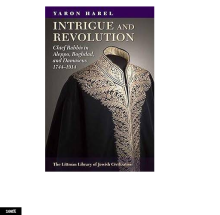
Intrigue and Revolution: Chief Rabbis in Aleppo, Baghdad, and Damascus, 1774-1914
תקצירThis is a book of unexpected drama: all eleven chief rabbis appointed in this period of unprecedented change in the Jewish communities of the Fertile Crescent became the subject of controversy and were subsequently dismissed. This took place against a background of events rarely discussed in the context of Jewish society: crime, hooliganism, slander, power struggles, sexual promiscuity, and even assaults and assassination attempts on rabbis. Using a wide range of testimonies gleaned from Ottoman Jewish, Arabic, and European sources, Yaron Harel paints a colourful picture of these upheavals set firmly in the social and political context of the time and far removed from the commonly accepted image of Jewish communities in the Ottoman empire.
Jews were also affected by modernization and political conflict in the wider society of the time, and these too gave rise to power struggles. The chief rabbis were at the forefront of these confrontations, especially those that resulted from the new inclination towards Western culture. Most of them recognized that the challenges of modernization had to be met, although in a way that did not endanger religious principles. Their openness to change stemmed from a concern for the future of the communities for which they were responsible, but they were often vociferously opposed by those who were free from such responsibility. The communal politics that ensued were sometimes heated to the point of violence.
In the latter years of the empire, many Jews came to support the Young Turks, with their promise of liberty and equality for all. The atmosphere of the time was such that rabbis had to develop political awareness and engage in Ottoman politics. This was another source of tension within the community since the new regime punished anyone suspected of opposition severely.
This lively and fascinating study based on little-known sources offers a lens through which to view the Jewish society of the Ottoman empire at a time when all the traditional norms were being challenged.
-
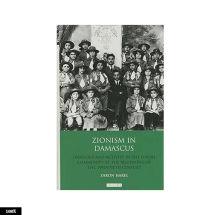
zionism in Damascus: Ideology and Activity in the Jewish Community at the Beginning of the Twentieth Century
תקצירThe beginning of the twentieth century was a period that saw far-reaching change in the political and geographical landscapes of the Middle East. From the impact of the revolution of the Young Turks in 1908 to the devastation of World War I and the subsequent British and French mandates in the region, Syria was particularly affected. Yaron Harel adds to the understanding of this period by examining an understudied aspect: the rise of Zionist intellectual thought and activity in the Syrian capital of Damascus. Through meticulous research, Harel highlights the fact that, during these difficult years, those parts of the Jewish community affected by the economic collapse of October 1875 were able to take solace in the rising trend of Zionist thought. He therefore demonstrates Zionism in Damascus was not a religiously motivated movement, but rather was class related. In particular, Harel examines what avenues of identity were available for the Jewish community in Damascus at a time when identification with Arab nationalism was on the rise in Syria. Were they to be Jewish - Arab? Or Jewish - Zionist?It is by examining issues such as Zionist education, health provision, women's political engagement and philanthropic activity that Harel offers an in-depth analysis of Zionism in the context of Jewish society.
He also offers an account of the eventual dismantling of the movement, in the wake of the establishment of the French mandate. With external forces beyond Syria's borders beginning to have an effect (such as the King - Crane Commission and efforts to establish a Jewish Homeland taking shape), as well as internal struggles within Zionist circles in Syria itself, the leaders of the Zionist movement in Damascus began to leave the city. Zionism in Damascus tracks those involved in this ideological wave (Zionist intellectuals, journalists, secular thinkers and rabbis) from its early days to the eventual abandonment of Damascus following the Balfour Declaration and the establishment of the French Mandate. -
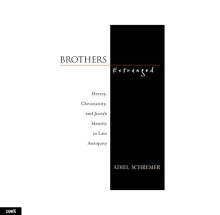
BrothersEstranged: Heresy ,Christianity, and Jewish Identity in Late Antiquity, New York and Oxford: Oxford University Press, 2010,
תקצירThe emergence of formative Judaism has traditionally been examined in light of a theological preoccupation with the two competing religious movements, 'Christianity' and 'Judaism' in the first centuries of the Common Era. In this book Ariel Schremer attempts to shift the scholarly consensus away from this paradigm, instead privileging the rabbinic attitude toward Rome, the destroyer of the temple in 70 C.E., over their concern with the nascent Christian movement. The palpable rabbinic political enmity toward Rome, says Schremer, was determinative in the emerging construction of Jewish self-identity. He asserts that the category of heresy took on a new urgency in the wake of the trauma of the Temple's destruction, which demanded the construction of a new self-identity. Relying on the late 20th-century scholarly depiction of the slow and measured growth of Christianity in the empire up until and even after Constantine's conversion, Schremer minimizes the extent to which the rabbis paid attention to the Christian presence. He goes on, however, to pinpoint the parting of the ways between the rabbis and the Christians in the first third of the second century, when Christians were finally assigned to the category of heretics.
-
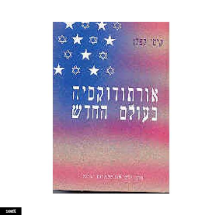
אורתודוקסיה בעולם החדש רבנים ודרשנות באמריקה (1924-1881)
תקצירמציאות קשה הניחה את התשתית להגירה הגדולה לאמריקה, במהלכה חצו כשניים וחצי מיליון יהודים את האוקיינוס האטלנטי. ספר זה מציב פרק בהיסטוריה הדתית של המהגרים היהודיים והנהגתם הרוחנית, בעזרת מעקב אחר תולדות חייהם, דרשותיהם ודרושיהם של רבנים ודרשנים אורותודוקסים מהגרים. הספר דן בשורה של נושאים הנוגעים למציאות החיים במזרח אירופה ובאמריקה ולדימוייה של מציאות זו, ובהם:
שורשיהם המזרח אירופיים של הרבנים והדרשנים; מניעי הגירתם לאמריקה וחבלי קליטתם והתאקלמותם בה; מעמדם; מקומה, תפקידיה וחשיבותה של הדרשה במירקם חייהם של המהגרים היהודים; תפיסתם של הרבנים והדרשנים את התמורות והטלטלות העוברות על העם היהודי במזרח אירופה ובאמריקה, והאתגרים שבפניהם הוא ניצב; פעילותם הציונית ותחזיתם הפסימית ביחס לעתיד היהדות באמריקה.
-
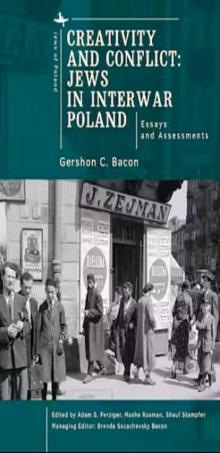
Creativity and Conflict. Jews in Interwar Poland. Essays and Assessments
תקצירDescription
Professor Gershon C. Bacon held the Marcell and Maria Roth Chair in the History and Culture of Polish Jewry at Bar-Ilan University's Israel and Golda Koschitzky Department of Jewish History and Contemporary Jewry in Ramat Gan, Israel. He has authored numerous books and articles on Polish Jewish history and currently serves as editor-in-chief of the journal Gal-Ed: On the History and Culture of Polish Jewry, while continuing his research and writing.
Contents
Preface
Acknowledgments
Notes on Commentators
Notes on Transliterations, Place-Names, and Publishers
Maps
Introduction: Interwar Polish Jewish History: A Reevaluation
Moshe Rosman
Part One
Looking Back: Society and Religion in Pre-World War I Poland
Jewish Society in the Polish Congress Kingdom, 1860-1914
Antony Polonsky comments
Prolonged Erosion, Organization, and Reinforcement: Reflections on Orthodox Jewry in Congress Poland., c. 1850 to 1914
Shaul Stampfer comments
3. Religious Coercion, Freedom of Expression, and Modern Jewish Identity in Poland:
I. L. Peretz, Sholem Asch, and the "Circumcision Scandal" in Warsaw, 1908
Adam Ferziger comments
Part Two
Society, Youth, Women, and Politics: Aspects of Jewish Life in Interwar Poland
4. Partial Success, Great Achievements: On Jewish Autonomy in Interwar Poland
Marcin Wodzinski comments
5. National Revival, Ongoing Acculturation: Jewish Education in Interwar Poland
Natalia Aleksiun comments
6. To Enlist the Enthusiasm of the Young: Orthodox Jewish Non-Political Responses to the Challenges of Interwar Poland
Uriel Gellman comments
7. The Missing 52%: The State of Research on Jewish Women in Interwar Poland and Its Implications for Holocaust Studies
Dalia Ofer comments
8. Woman? Youth? Jew?: The Search for the Identity of Jewish Young Women in Interwar Poland
Eliyana Adler comments
9. Reluctant Partners, Ideological Rivals: Reflections on the Relations between Agudath Israel and the Zionist and Religious Zionist Movements in Interwar Poland
Ada Gebel comments
Part Three
Struggles and Scandals: The Politicization of the Polish Rabbinate in Interwar Poland
10. Ideology of Agudath Israel: "Da'at Torah" and "Birthpangs of the Messiah"
Aryeh Edrei comments
11. Enduring Prestige, Eroded Authority: The Warsaw Rabbinate in the Interwar Period
Asaf Yedidya comments
12. The New Jewish Politics and the Rabbinate in Poland: New Directions in the Interwar Period
Mordecai (Motti) Zalkin comments
Part Four
Jews as Part of the Fabric of Polish Society
13. Messianists, Pragmatists, and Patriots: Orthodox Jews and the Modern Polish State
Kamil Kijek comments
14. Polish-Jewish Relations in Modern Times: The Search for a Metaphor and a Historical Framework
Yitzhak Conforti comments
Contributors
Professor Gershon C. Bacon held the Marcell and Maria Roth Chair in the History and Culture of Polish Jewry at Bar-Ilan University's Israel and Golda Koschitzky Department of Jewish History and Contemporary Jewry in Ramat Gan, Israel. He has authored numerous books and articles on Polish Jewish history and currently serves as editor-in-chief of the journal Gal-Ed: On the History and Culture of Polish Jewry, while continuing his research and writing.
-
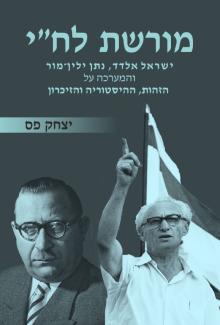
מורשת לח"י: ישראל אלדד, נתן ילין מור והמערכה על הזהות, ההיסטוריה והזיכרון, חיפה: מוסד הרצל לחקר הציונות, אוניברסיטת חיפה תשפ"א.
תקצירספר זה בוחן את הפולמוס ארוך השנים על מורשת לח"י, הארגון הקנאי והרדיקלי שנלחם בבריטים למען עצמאות ישראל. לח"י לא היה ארגון הומוגני והכיל בקרבו שני פלגים. פלג ימני בראשות ד"ר ישראל אלדד, האידיאולוג שלו ופלג שמאלי בראשות נתן ילין-מור ההוגה הפוליטי. אלדד וילין-מור שהמשיכו לפעול בזירה הפוליטית והתקשורתית לאחר הקמת המדינה, זה בימין הרדיקלי וזה בשמאל הרדיקלי, ניהלו מערכה חריפה על דמותה של המחתרת בראשה עמדו והציגו נרטיב שונה ומנוגד באשר לאופייה ולזהותה. נרטיב בו השתמשו כבסיס לפעילותם הפוליטית במדינת ישראל.
-
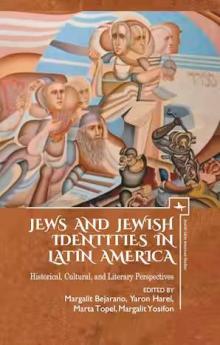
Jews and Jewish Identities in Latin America Historical, Cultural, and Literary Perspectives
תקצירThis collection of articles constitutes a major contribution to the growing field of Latin American Jewish studies, offering different perspectives on the rich and complex phenomena in the social, political, and cultural development of Jewish communities in the area. The essays span across a wide range of subjects, from comparisons between Jewish communities from different countries and with different levels of assimilation, the effects of globalization and transnationalism on the field, the interactions between Jews and non-Jews in the area, all the way to literary criticism. Based on an international conference organized by the University of Sao Paulo, the Dahan Center of Bar Ilan University, and the Academic College in Ashkelon, this volume offers a new approach to Latin American Jewish studies: it contributes to demystifying stereotypes and raising awareness of the importance of Latin America in a global context, and it highlights the relevance of the different Jewish communities across the globe in their special relationship to the state of Israel.
-
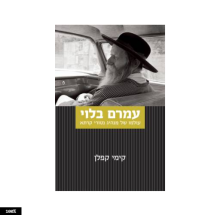
עמרם בלוי : עולמו של מנהיג נטורי קרתא
תקצירעמרם בלוי הנהיג את נטורי קרתא, קבוצה חרדית קנאית אנטי-ציונית, משלהי שנות השלושים עד אמצע שנות השישים של המאה העשרים. האיש והקבוצה הקטנה שהנהיג יזמו עשרות רבות של הפגנות, בעיקר בירושלים, במחאה על חילולי שבת ועל נורמות הצניעות במרחב הציבורי. הם התעמתו עם שוטרים והעסיקו רבות את משטרת ישראל, את נבחרי הציבור ואת השיח הציבורי והתקשורתי, והיו אורחים של קבע בבתי מעצר, בבתי משפט ובבתי כלא. עמרם בלוי עיצב במידה רבה את דימויהּ העָצמתי של נטורי קרתא כקבוצת מחאה. דימוי זה עומד ביחס הפוך לשוליותה המספרית, ורישומו ניכר עד ימינו בזיכרון הקולקטיבי ובדעת הקהל בישראל. אלה שהכירו את עמרם בלוי או פגשו אותו לא נותרו אדישים כלפיו. היו ששנאוהו, היו שחלקו עליו, אחרים ראו בו קוריוז ומייצגו של עולם שאבד עליו הכלח. בה בעת היו שגילו בו עניין, העריצוהו או ראו בו דמות מיתית. הוא לא היה למדן, תאולוג או פוסק הלכה, לא נשא בתואר או במשרה רבניים ולא היה עסקן במובן התנועתי-פוליטי. הוא לא נרתע מלקרוא תיגר על מוסכמות העולם החרדי וחולל סערה בנישואיו השניים לגיורת רות בן-דוד. עם זאת הוא היה אידאולוג ומפגין תקיף ונחוש שניחן באישיות ססגונית ומורכבת ובמזג סוער, ברגישות ובמאור פנים. ביוגרפיה זו, שמבוססת על מגוון עשיר של מקורות, פותחת צוהר לעולמם של חרדים קנאים אנטי-ציונים בכלל ושל עמרם בלוי בפרט. היא מספרת את סיפורו של מי שהתנגד למפעל הציוני ולמדינת ישראל ובו בזמן היה חלק בלתי נפרד ממנה. יש בספר זה משום הזמנה להתבונן בציונות, במפעל הציוני ובמדינת ישראל מנקודת מבטו של אחד המתנגדים הגדולים והעקיבים שקמו להם בחברה היהודית במאה העשרים. הספר ראה אור בשיתוף יד יצחק בן-צבי. קימי קפלן מלמד במחלקה לתולדות ישראל ויהדות זמננו על שם ישראל וגולדה קושיצקי באוניברסיטת בר-אילן. תחום מחקרו הוא היסטוריה דתית במאות התשע עשרה והעשרים, והוא חוקר זרמים דתיים בחברה היהודית, את הדרשה וספרות הדרוש ואת הדת העממית.
-
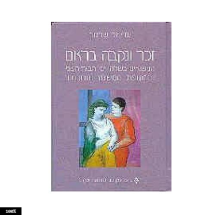
זכר ונקבה בראם : הנישואים בשלהי ימי הבית השני ובתקופת המשנה והתלמוד
תקצירזכר ונקבה בראם בוחן את מוסד הנישואים במציאות החברתית של יהודי ארץ ישראל ובבל בשלהי ימי הבית השני ובתקופת המשנה והתלמוד. הספר עומד על חשיבותם של הנישואים בעיני בני התקופה, על הערכים שלדעתם באו בהם לידי מימוש, וכל נורמות הנישואים כפי שהתקיימו במציאות.
זכר ונקבה בראם דן גם בהיבטים הרעיוניים של הנישואים, כפי שהם באים לידי ביטוי בספרות התלמודית, ומבקש לברר את תהליכי ההיזון החוזר המתקיימים בין חיי המעשה מזה לדעות ול'השקפות' מזה. הספר חושף שינוי שעבר מוסד הנישואים בקרב יהודי ארץ ישראל במהלך תקופת המשנה והתלמוד, שבו הפך הקשר הזוגי למוקד הנישואים ולעיקרם. התפתחות זו באה לידי ביטוי הן בהתבטאויות מפורשות של חכמים, הן בהלכותיהם, הן באחדות מנורמות ההתנהגות של הציבור בפועל.
-
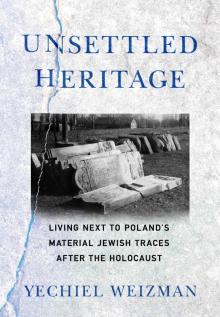
Unsettled Heritage : Living Next to Poland’s Material Jewish Traces After the Holocaust
תקצירYechiel Weitzman, Unsettled Heritage : Living Next to Poland’s Material Jewish Traces After the Holocaust, Ithaca: Cornell University Press, 2022.
מה קרה לאלפי בתי הקברות היהודיים ובתי הכנסת בפולין לאחר השואה? כיצד התייחסו הרשויות הפולניות למרחבים אלה וכיצד התמודדו התושבים הפולנים עם נוכחות השרידים החומריים של שכניהם הנעדרים? שאלות אלה עומדות במרכזו של ספר זה, שהינו ניסיון ראשון לשרטט תמונה מקיפה על אודות גורלם, מעמדם המשפטי והסמלי ומשמעותם התרבותית של האתרים היהודיים בפולין מתום מלחמת העולם השניה ועד להווה. הספר מתחקה אחר התהליכים והגורמים הפוליטיים, החברתיים והכלכליים שהשפיעו על גלגולם ותפיסתם החברתית המשתנה של אתרי המורשת של הקהילה היהודית הגדולה ביותר באירופה ובכך הוא מבקש להציע דרך חדשה ומקורית להבנת ההשלכות העמוקות של השואה על העולם היהודי, על התרבות האירופאית ועל התפתחות האנטישמיות לאחר 1945.



